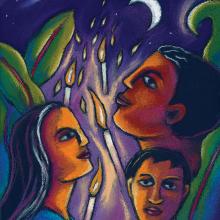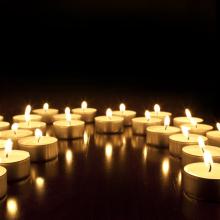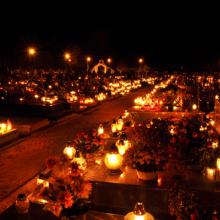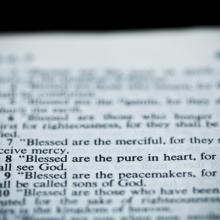Beatitudes
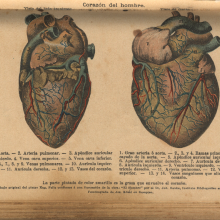
cameta / wikicommons
Blessed are the poor in heart, for they shall see God. —Matthew 5:8
OVER TIME MANY things heal. Yet I wonder how people who have lost loved ones to domestic violence or wars measure time. How long does it take to forget or forgive? I also think of the wounded who now have missing limbs or have lost their sight. Do they stay awake counting their heartbeats? How do they find the fortitude to love again?
The heart is a fragile thing, yet at times it appears to be as strong as bone. Too many of us are familiar with the broken heart. We surrender to days of quiet desperation, often unhappy with our conditions. We succumb to disappointment or accept failure. Meanwhile the world hides behind ugliness, as hatred and prejudice become a prerequisite for racism and sexism. Sickness becomes the norm when everyone suffers from the fever of despair. It’s easy to say yes to indifference and for a society to become comfortable with intolerance.
When Jesus delivered the Sermon on the Mount, it was a chance to outline a blueprint for living. Surrounded by his disciples, the message of Jesus was one of “goodness” and the need to strengthen one’s faith. There are things in the world that are difficult to explain. It’s easy for one to embrace the darkness of shadows, to fail to see bright radiance of hope. Yet what defines our humanity is our capacity to love; this ability is what infuses history with moments of glitter. In many ways the 21st century will be shaped by religion and how we interpret the various sacred texts found in almost every culture. The movement of history is shaped by people.
Leadership performed by the common person requires preparation and courage. This type of leadership was on display after the tragedy at the Emanuel African Methodist Episcopal Church in Charleston, S.C. We all possess the divine quality to do right, even when we might be reluctant to act upon it. Fear is in a constant battle with faith. The unknown is usually a companion to social change. As we confront days of terror and terrorism, we must not lose our moral compass. We must not compromise our hearts.
Jesus placed faith and trust in his disciples, knowing they could spread his teachings. This would be possible if they opened themselves to becoming born anew. A new world is only possible if people are capable of discarding selfishness and accepting the nakedness of the open soul—hence the opportunity to be reborn with the acceptance of the Holy Spirit into one’s life. Compassion and the practice of forgiveness must eventually be taught to our young people. Our new generation of activists must prepare themselves to seek higher ground, a place where politics does not exclude the poor and those in need.
TO ENTER la fortaleza where Jhonny Rivas was being held prisoner, I had to hand over my passport and undergo a thorough search, which included squatting naked on top of a mirror laid on the floor. I wanted to turn around indignantly and go home. Instead I faced the two female guards, girls really, one with braces, the other with the acne of a teenager. Por favor, I appealed. They exchanged an unsure glance, no doubt worried about el capitán strutting outside, then gestured for me to put my clothes back on. At the door, I embraced them.
Blessed are those who don’t follow unrighteous rules, for they shall be hugged.
I confess that I often practice my own beatitudes lite. It’s where I often want to stop, at the easier, feel-good variety of activism. But the beatitudes are as morally rigorous as those daunting Ten Commandments, albeit working through positive reinforcement—blessings rather than “thou shalt nots.” If you truly embrace them, they keep pulling you further and further out of the comfort zone of the self that always wants to stop at having done its part.
I STOLE MY brother’s pellet rifle when I was 6 because it was an upgrade from our old lever-action BB gun. I just wanted to hold it, to feel its heft.
I put a single pellet from a plastic tray in the chamber, the same way I had seen him do it, set the tray on the ground and cocked the gun with a click and a click. I pumped the forestock until the gun felt air-filled and lethal.
I wondered if it would hurt my shoulder. The kickback.
I leaned my head toward the barrel and closed one eye and leveled the gun at the thick canopy of a crab apple tree growing too close to the barn. The gun gave a swift exhale, and the pellet thwacked into the branches.
A second later, a red-breasted robin tumbled from the tree.
A YEAR BEFORE her death from ovarian cancer, my 78-year-old mother finally started losing weight. She gave up fatty foods and sweets and went to herbalists who sold her pills that were supposed to regulate her digestion. In addition to all this, she was seeing her primary physician every three months.
The weight flying off seemed like a reward for her good behavior. The only downside was that my mother, who now weighed less than me, was burping all the time, as if there was thunder trapped inside her ever-shrinking body.
At Christmas time, I invited her to come spend the holidays with me and my family in Miami. At first she said no. Her birthday was three days after Christmas and she wanted to spend it at her home in New York.
She changed her mind right before Christmas, and she cooked us a wonderful Christmas dinner, and we took her to one of our favorite Haitian restaurants for her birthday. At her birthday dinner, my two daughters performed a birthday dance for her in the middle of the restaurant, and my usually reserved mother laughed and clapped with joy, a kind of joy we would rarely see again in the months that followed.
THIS IS SURELY the most difficult beatitude. First, it’s hard to interpret. Does “meek” mean a Uriah Heep-like unctuous humbleness? Does it mean softness or gentleness or weakness? Are “the meek” the powerless, or perhaps the poor? Is their meekness to be displayed toward God, but not toward people? How meek is meek, and do you always have to let bullies kick sand in your face at the beach?
Next, what about “inherit”? That’s a legalistic term; who’s going to die so someone else gets an inheritance? Will the non-meek be pushed over a cliff so that only the meek are left? Or will the non-meek be lowered in status and the meek become rulers, thereby shedding their meekness?
And what about “the earth”? Another beatitude refers to the kingdom of heaven—the poor in spirit have it already, it seems—but “the meek” will instead inherit “the earth.” The material world.
Being Canadian, I memorized the beatitudes at school. But I wondered whether “the meek” had to be people. Could they be some other life form? Scottish physiologist J.S. Haldane felt God shows an inordinate fondness for beetles—having created so many—and my own father speculated that, if humankind destroyed itself by nuclear bombs or otherwise, the earth would be inherited by cockroaches. That would explain everything!
“Administration officials have repeatedly assured Americans that they were prepared for Ebola. Less than two weeks ago here at the White House, they insisted they knew how to stop this virus in its tracks. But so far, the virus appears to be outrunning the government. “
So began Scott Horsley’s report from the White House, one of three separate stories NPR’s news showAll Things Considered devoted to Ebola on Wednesday, October 16. According to yet another report, a recent Harvard School of Public Health survey finds that 40 percent of Americans feel “at risk” of contracting the disease.
We have Ebola on the brain.
Several of my friends expressed alarm when the first Ebola patient flew to the United States for treatment. Now we find that not one but two Dallas nurses have contracted Ebola, likely because their hospital did not adopt proper Ebola protocols. Americans know that their medical system is far better equipped to prevent an Ebola outbreak than are those in West Africa. We know our system is better prepared to offer effective treatment. But the appearance of multiple cases, one involving a nurse who took a commercial flight while possibly contagious, has people concerned. When a key public health expert says, “It’s a learning process, and . . . our confidence in the hospitals was ill-founded,” the rest of us might get a little nervous.
In the days before video games, we had tabletop games that were a lot of fun despite their built-in shortcomings. We had an electric football game with a vibrating field; sometimes, the players would go in circles or simply stop in place. There was a hockey game with long rods that were pushed and pulled to make players advance or retreat, then spun to make them whirl and shoot; occasionally, the puck would wind up in a dead space on the board.
At those moments, you had two choices: Call a timeout, or raise your legs a bit to tilt the table and get the player or the puck headed in the other direction.
Naturally, this was frowned upon. It was seen as cheating — giving yourself an advantage. If you got caught raising the table, you were penalized. A tilted table was considered unfair.
In real life, we all sit at tilted tables.
ADVENT IS UPON US: Waiting for the coming of Christ. But do we really know who he is or what his kingdom brings? His Beatitudes from the Sermon on the Mount are good reminders.
Blessed are the poor in spirit, for theirs is the kingdom of heaven.
Luke’s version of the Sermon on the Mount simply has “blessed are you who are poor” (Luke 6:20). Taking Matthew and Luke together, the kingdom will become a blessing to those who are afflicted by both spiritual and material poverty. The physical oppression of the poor will be a regular subject in this kingdom, but the spiritual impoverishment of the affluent will also be addressed and healed. Spiritual poverty is often the result of having too much and no longer depending on God. Jesus offers blessings and healing to those who are both poor and poor in spirit.
Blessed are those who mourn, for they will be comforted.
Those who have the capacity to mourn and weep for the world will be comforted by the coming of this new order. Jesus’ disciples would later hear him say that loving their neighbor as themselves was one of the two great commandments (Matthew 22:39; Mark 12:31; Luke 10:27). To feel the pain of the world is to participate in the very heart of God and one of the defining characteristics of God’s people.
Blessed are the meek, for they will inherit the earth.
Christ’s kingdom turns our understanding of power upside-down. Mary’s Song, the Magnificat, promises the same when she prays about what Christ’s coming means: “He has scattered the proud ... brought down the powerful from their thrones ... lifted up the lowly ... filled the hungry with good things, and sent the rich away empty” (Luke 1:51-53). And when Jesus is asked who will be first in his kingdom, he tells them it will be the servants of all.
I probably shouldn’t admit how much I like Halloween. I’m too much of a slug to deck out my house, I rarely wear a costume, and I haven’t been to a wild party in years, but I love the excitement children bring to the whole process. Then again, there’s the classic It’s the Great Pumpkin, Charlie Brown – what’s better than that? I’m pretty much a sucker for Halloween.
I was already an adult when I learned how we came upon Halloween. All Hallows’ Eve marks the night before All Hallows’ Day, or All Saints’ Day, when Christians celebrate those who have preceded us in the faith. Some churches honor great heroes of the faith, the “saints” of our past. Other churches emphasize that all believers are “saints,” not because we are especially virtuous but because we are made holy simply by God’s will. In some churches, the label “saints” joins us not only to our deceased forebears but also to our living sisters and brothers scattered around the world. (Still other churches simply don’t observe the day at all.)
Watching sports is not as much fun as it used to be.
I blame Jesus for that, because he just had to say:
“Love thy enemy.”
Or, as Chad Gibbs puts it in the title of his fantastic book on spirituality and sports, Love thy Rival.
“Blessed are the peacemakers, for they will be called children of God.
“Blessed are those who are persecuted for righteousness’ sake, for theirs is the kingdom of heaven.
“Blessed are you when people revile you and persecute you and utter all kinds of evil against you falsely on my account. Rejoice and be glad, for your reward is great in heaven, for in the same way they persecuted the prophets who were before you.”
Social Justice Reflection:
Jesus was a peacemaking, blessed child of God, but he also was an “other.” Reviled and persecuted, he was the paperless son of displaced immigrant parents. The prophetic iconoclast. That guy who hung out with those people, the type most modern leaders would not associate with, except for a photo opportunity at a Thanksgiving Day soup kitchen. Let us remember on Sunday when we celebrate his resurrection, that Jesus was crucified because he was an outsider whose way of doing things scared and angered the powers-that-be.
We have become a nation that loves to “other” people. We point out their differences as reasons they cannot be trusted, as evidence that they take too much from the rest of us or threaten our well-being. We have lengthy, bitter debates about allegiance and legitimacy, and we reject those who do not meet our standards. We know who belongs, and the others need to clear out and leave us alone with our worldly possessions, our rules, and our way of doing things.
Most every Sunday Ruth or Lily Janousek hands me a drawing on the way out the door. I have quite a collection.
Lily and Ruth are budding theologians. They may not know that about themselves, but that’s what they are: budding theologians — they do theology. They do their best to speak of God.
They draw pictures of God and us. Like the one from last Sunday — a drawing of a bouquet with the words:
“God doesn’t love us as a flower but as a bouquet.”
